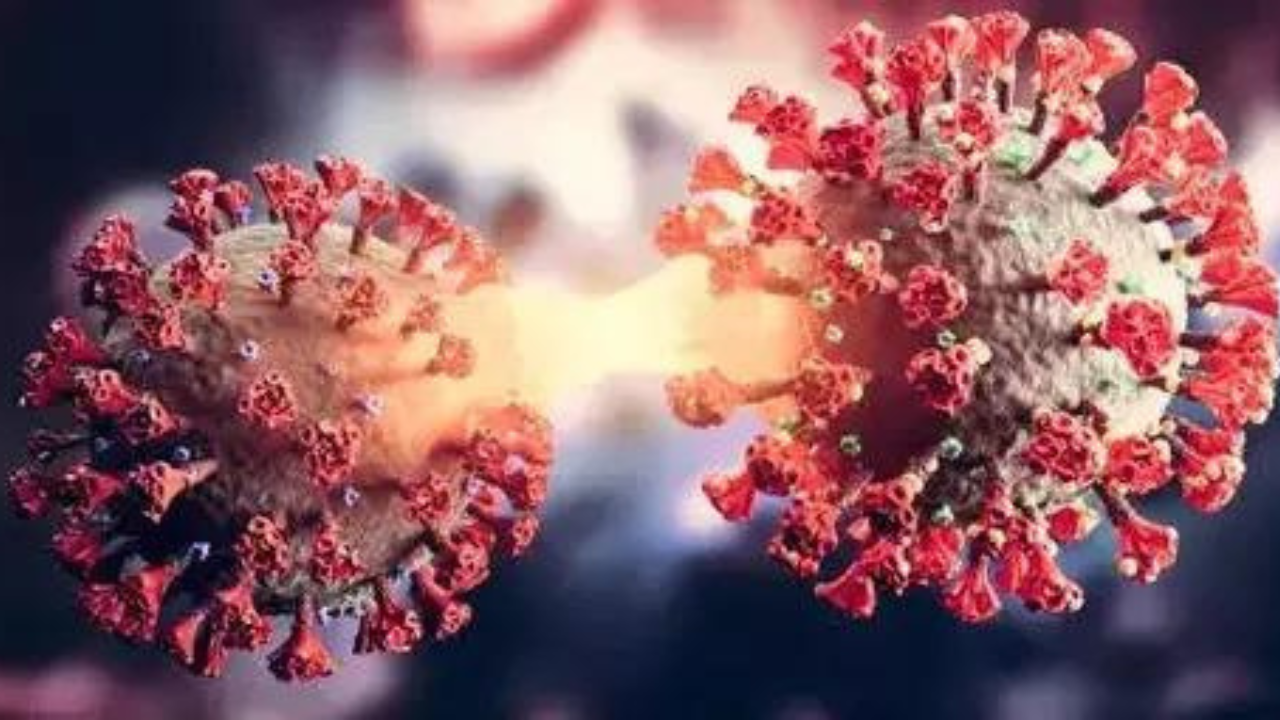
NEW DELHI: The EG.5.1 variant of SARS-CoV-2 can escape neutralising antibodies better than other currently circulating strains, giving it an advantage in infecting vaccinated or previously infected people, according to a study published in The Lancet Infectious Diseases journal. However, the researchers found that the increase in the ability to escape antibodies is rather moderate and by no means sufficient to completely undermine our immunity that has been established through hybrid immunity.
The team including researchers from the German Primate Center in Gottingen, Germany examined the characteristics of the Eris sublineage EG.5.1.
They found that EG.5.1 is not more infectious than its predecessors, meaning it cannot infect host cells more effectively.
However, EG.5.1 can escape immunity better than other currently circulating SARS-CoV-2 lineages, giving it an advantage in infecting individuals whose immune systems have produced neutraliSing antibodies after vaccination or infection, the researchers said.
A part of our immune protection relies on neutralising antibodies that are produced by the cells of our immune system after vaccination or infection.
These antibodies attach to the spike protein of SARS-CoV-2, preventing the virus from entering into our cells. This mechanism is also referred to as neutralisation.
Since May this year, EG.5, including its descendant EG.5.1, has been on the rise in many countries. The lineage, classified as a “Variant of Interest” by the World Health Organization (WHO), is also referred to as Eris.
The study found evidence that an increased ability to escape from antibodies is the likely cause for the enhanced spread of Eris.
“We found that, in comparison to other currently circulating SARS-CoV-2 lineages, EG.5.1 does not possess an advantage in infecting host cells,” said Lu Zhang, the lead author of the study.
“However, further investigations revealed that EG.5.1 is less effectively neutralised by antibodies present in the blood of vaccinated individuals or vaccinated and infected individuals,” Zhang said.
The experiments were conducted using viruses produced in the laboratory, known as pseudoviruses, for safety reason.
“In summary, our results suggest that the spread of EG.5 and its sublineages primarily relies on antibody escape rather than an enhanced ability to infect host cells,” said Markus Hoffmann, lead scientist in the study.
“However, the increase in the ability to escape antibodies is rather moderate and by no means sufficient to completely undermine our immunity that has been established through vaccination or prior infection,” Hoffmann added.
The team including researchers from the German Primate Center in Gottingen, Germany examined the characteristics of the Eris sublineage EG.5.1.
They found that EG.5.1 is not more infectious than its predecessors, meaning it cannot infect host cells more effectively.
However, EG.5.1 can escape immunity better than other currently circulating SARS-CoV-2 lineages, giving it an advantage in infecting individuals whose immune systems have produced neutraliSing antibodies after vaccination or infection, the researchers said.
A part of our immune protection relies on neutralising antibodies that are produced by the cells of our immune system after vaccination or infection.
These antibodies attach to the spike protein of SARS-CoV-2, preventing the virus from entering into our cells. This mechanism is also referred to as neutralisation.
Since May this year, EG.5, including its descendant EG.5.1, has been on the rise in many countries. The lineage, classified as a “Variant of Interest” by the World Health Organization (WHO), is also referred to as Eris.
The study found evidence that an increased ability to escape from antibodies is the likely cause for the enhanced spread of Eris.
“We found that, in comparison to other currently circulating SARS-CoV-2 lineages, EG.5.1 does not possess an advantage in infecting host cells,” said Lu Zhang, the lead author of the study.
“However, further investigations revealed that EG.5.1 is less effectively neutralised by antibodies present in the blood of vaccinated individuals or vaccinated and infected individuals,” Zhang said.
The experiments were conducted using viruses produced in the laboratory, known as pseudoviruses, for safety reason.
“In summary, our results suggest that the spread of EG.5 and its sublineages primarily relies on antibody escape rather than an enhanced ability to infect host cells,” said Markus Hoffmann, lead scientist in the study.
“However, the increase in the ability to escape antibodies is rather moderate and by no means sufficient to completely undermine our immunity that has been established through vaccination or prior infection,” Hoffmann added.
